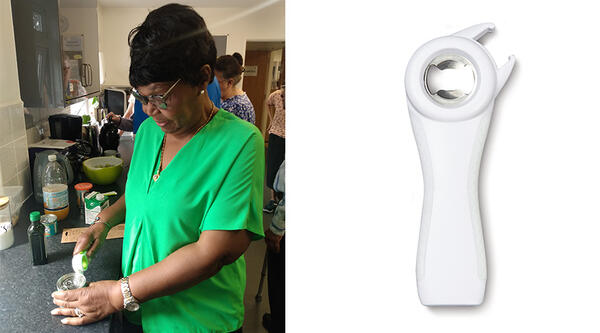Drinking, hydration and dementia
People with dementia can experience problems with drinking. These can include problems with staying hydrated or with alcohol.
Eating and drinking
- Eating and drinking
- Appetite and dementia
- You are here: Drinking, hydration and dementia
- Changes in eating habits and food preference
- Supporting someone with dementia to eat and drink
How can dementia affect drinking?
Someone with dementia may not recognise that they are thirsty, or they may forget to drink.
They might also struggle to get themselves a drink or tell you when they are thirsty. This can lead to them becoming dehydrated, which can cause headaches, increased confusion, constipation and urinary tract infections (UTIs). These can make their dementia symptoms worse.
Helping a person who has dementia to drink enough
It’s important to look out for signs of dehydration. This can include:
- a dry mouth or lips
- feeling dizzy or lightheaded
- needing the toilet less than usual
- dark or strong-smelling pee.
Placing a drink in front of someone doesn’t always mean they will drink it. Also, an empty cup doesn’t always mean that the person has finished the drink. It may have been spilt, drunk by someone else, or poured away.
Tips to help a person stay hydrated
- Encourage the person to drink throughout the day. The recommended amount is between 6 and 8 cups or glasses of fluid a day. Offer different types of drinks throughout the day such as tea, coffee, hot and cold milky drinks, fruit juice or smoothies, soup, squash and water.
- Give the person a drink whenever they are eating.
- Use a clear glass so the person can see what’s inside or try a brightly coloured cup to draw attention instead.
- If possible, give the person the cup or put it where they can see it clearly. Give them a straw if this makes drinking easier.
- Make sure the cup or glass is suitable – not too heavy or a difficult shape to hold.
- Encourage the person to eat foods that have a high liquid content, such as gravy, ice lollies, milk jellies and yogurt.
- Try using sweets called Jelly Drops®, which can help people with dementia to take in more water.
Can people who have dementia drink alcohol?
People with dementia can become more confused after they drink alcohol. This can lead to accidents, misjudging situations and injury. Drinking alcohol can also lead to dehydration. Alcohol also doesn’t mix well with certain medicines.
People who have dementia related to past alcohol use should not drink alcohol. If you have any concerns ask the GP for advice.
Tips for drinking less alcohol
You may need to look at ways to limit the amount of alcohol the person drinks. A person with dementia may drink too much because they have forgotten how much they have had. If this happens, you could pour the drink for them and then keep any alcohol out of sight.
Think about the times when they want an alcoholic drink. For example, if they have always had an alcoholic drink with their main meal, they may want to continue this habit. Consider low-alcohol or non-alcoholic substitutes or watered-down alcoholic drinks.
If the person wants alcohol when they are bored, look at ways to keep them engaged and involved.
Alcohol dependency
If the person has struggled with alcohol dependency in the past, think about approaches in the past that have helped, and whether these same approaches could be used or adapted now.
Think about contacting an organisation such as Alcoholics Anonymous for more specialised, professional support.









